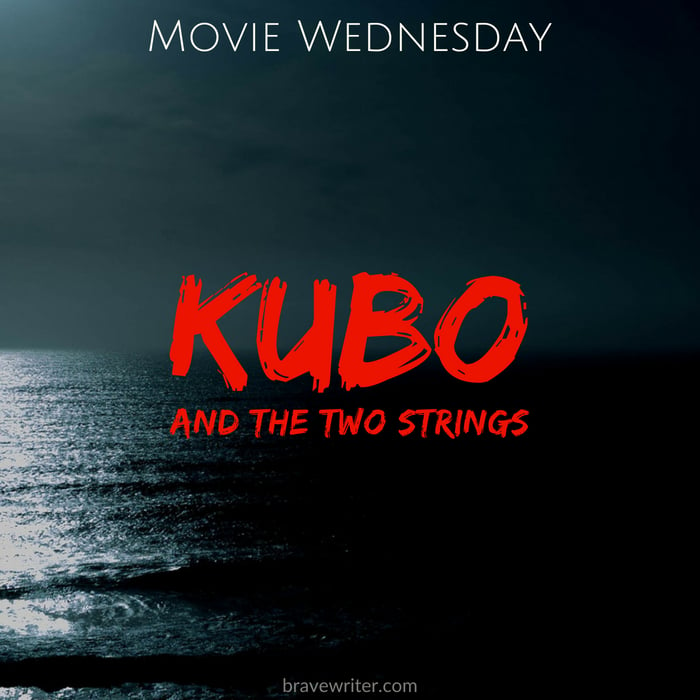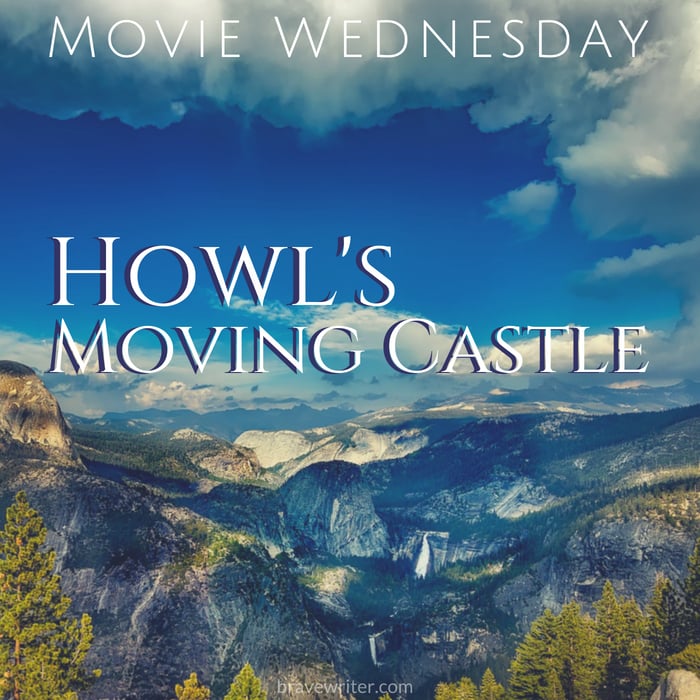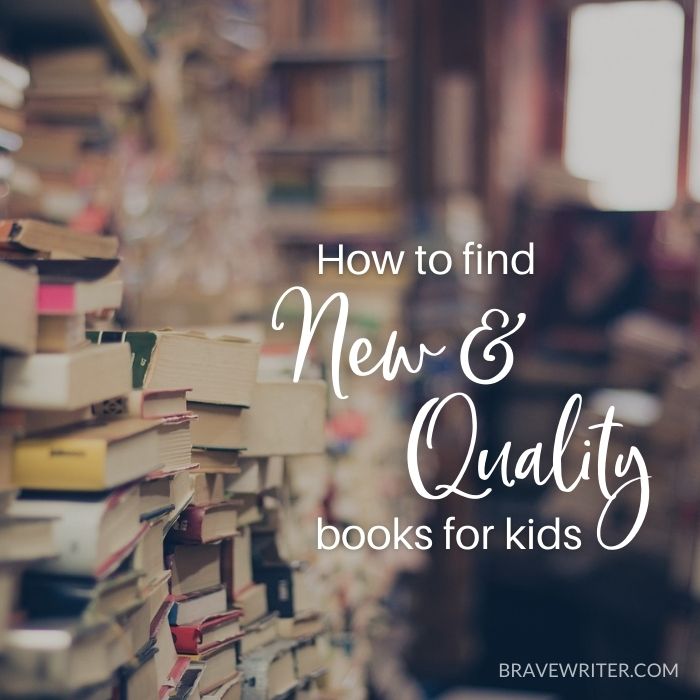
by Amy Frantz, Brave Writer alum
Kubo’s eye was taken when he was a baby by his grandfather, the Moon King. His mother was able to escape from her family with her son, but lives in fear knowing that the Moon King will one day come for her child’s other eye. At twelve-years-old, Kubo must tend to his mother, whose mental state is deteriorating, and earn money by enchanting origami with his magical shamisen to tell the local villagers stories about his father, the great warrior Hanzo. But one day, Kubo stays out after dark and the Moon King is able to find him. Now Kubo, with the help of his shamisen and two unlikely companions, Monkey and Beetle, must find his father’s legendary armor so that he may defeat the Moon King and protect those he loves.
[This post contains Amazon affiliate links. When you click on those links to make purchases,
Brave Writer receives compensation at no extra cost to you. Thank you!]
Kubo and the Two Strings is a 2016 fantasy stop motion animated film.
Kubo is set in the Japanese feudal era. Feudalism is a social structure around the holding of land by nobles where the peasant classes owe them service for living on the land. In Japan, the feudal period was roughly from 1185 to 1603 (with some historians also including the Edo Period in this time which extends it to 1868). The feudal period was decisively ended by the Meiji Era, which saw major social reforms and westernization in Japan.
Kubo is a stop motion film. Stop motion is an animation technique where physical objects are incrementally moved in-between still shots, so that when the film is played back at a fast speed the objects appear to be in motion. A combination of puppets, miniatures, and special effects were used to create the magical stop motion world of Kubo.
Discussion Questions
- Kubo and the Two Strings has a lot to say about storytelling and the importance of stories in our lives. At the climax of the film, the villagers tell Kubo’s newly human grandfather stories about who he is, which we the audience know aren’t true but which the grandfather accepts because he has no memories of his own. What do you think the film is trying to say concerning the power of the stories we tell about ourselves and about others?
- Kubo and the Two Strings is a quest story and follows many aspects of the monomyth or the Hero’s Journey. Do you find stories that follow these patterns predictable or do you like seeing the different ways that different storytellers interpret a pattern? Explain your answer.
- Kubo has two guides on his quest, Monkey and Beetle. If you were to have two guides on an epic quest, who do you think they would be and what might they be like?
- Do you think it was ethically wrong for the villagers to essentially lie to Kubo’s grandfather about who he is? Is a lie always wrong even if it causes positive change in a person? Explain your answer.
- Kubo and the Two Strings caused controversy because no Japanese voice actors are featured in the main cast, despite the film being set in feudal Japan. A few Asian American actors, notably George Takei of Star Trek fame, can be heard in minor supporting roles, but the main cast is comprised of non-Asian actors leading to accusations that the film is whitewashed. Do these casting choices detract from your experience of the film? Explain your answer.
Additional Resources
Credited As: Stop Motion Animator – Academy Originals YouTube video – Behind the scenes of the stop motion animation of Kubo and the Two Strings
Origami Crane Tutorial – YouTube video
5 Things You Need to Know About: The Shamisen – JapanSocietyNYC YouTube video
Amy Frantz is a Brave Writer alum. When not over-analyzing Star Wars, in her spare time you will find her…actually, she mostly just over-analyzes Star Wars.























